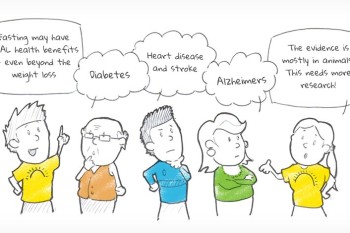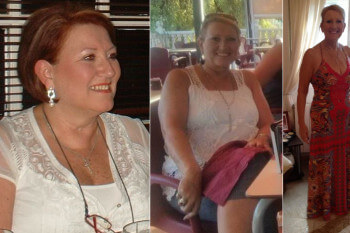Most of the benefits from fasting arise because of the decrease in insulin levels that is caused by not eating any carbohydrates when we fast (or eating anything for that matter).1 It is not simply that we are reducing our calorie intake that brings the benefits (though of course we have to do that to lose weight). Indeed, our early investigations here at FastDay into how best to fast2 found that the people who lost weight most quickly were those whose fast days involved fasting for at least 20 hours before having anything to eat.2 People who spread their calorie allowance out over the day so that they were properly fasting for less than 12 hours seemed to lose weight the slowest.
This does not mean that we need to be fasting for extended periods in order to gain benefits. Studies of daily fasting as practiced during Ramadan have suggested that levels of the hormone, leptin, which makes us feel hungry when its levels fall, may be maintained by daily fasts of around 12 hours,3 and this will help keep our appetites in check.
Even occasional fasting may be enough to bring health benefits.4 So if you don’t want to lose weight, fasting once a week or even less often should still be helpful, particularly if you make that fast a good one (i.e., not consuming any calories for at least 20–24 hours).
Protein intake also affects the benefits of fasting. High protein intake is associated with an increased risk of cancer. Like with carbohydrates, when we are fasting we are not eating protein, but being mindful of our overall protein intake can boost the health benefits of fasting. it is recommended that unless we have a particular need for a higher protein intake (e.g., during pregnancy or if trying to build muscle), an adult only needs 0.8g of protein for every kilogram of body weight.
Learn more about what happens to the food we eat
Learn more about the health benefits of fasting
Learn more about fasting and fat burning
How can I get the maximum benefit from intermittent fasting?
-
Ensure your fast days have some good long periods of no calorie intake.
-
If you cannot manage without a snack, try to choose no or very low carbohydrate-containing foods.
-
Do not break your fast with a high sugar/high carbohydrate meal.
-
Be mindful of how much protein you are consuming.
-
Alternate your fasting with periods of healthy eating.












